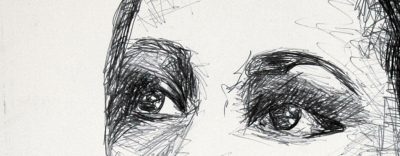Darby Pops Off: “Criticism” by Abigail Cook
Written by Kristine Chester | No Comments | Published on May 20, 2016 The content that follows was originally published on the Darby Pop Publishing website at https://www.darbypop.com/darby-pops-offs/darby-pops-off-criticism-by-abigail-cook/
The content that follows was originally published on the Darby Pop Publishing website at https://www.darbypop.com/darby-pops-offs/darby-pops-off-criticism-by-abigail-cook/
The hardest part of writing for me (next to getting started) is letting someone else read what I’ve written. My anxiety grows, becoming this heavy weight centered in my chest. All of my proofreading talents prove useless on my own work, no matter how many times I read over it, and the feedback – good or bad – is never quite what I expected. Learning to allow, accept, and learn from criticism is a talent every artist – no matter their medium – has to learn. Darby Pop’s summer intern, Abigail Cook, shares her experiences with criticism and offers some suggestions on how to accept, and how to give, criticism.
If you have a thought on the topic of the week, please join in the discussion on Facebook (facebook.com/DarbyPopPublishing), Twitter (@DarbyPopComics), or in the comments section below.
Until next time,
-Kristine
*Drawing by Lizzy Dragoni
One of the hardest things for an artist to do is handle criticism in a productive way. This can be particularly challenging for young artists who may not have a lot of experience with harsh judgment. As a college student who has received her fair share of art critiques, I’ve come to realize that learning how to accept criticism takes time and practice. Granted, the critic is not always right; what an “expert” might consider to be “wrong” may just be a function of personal taste. Despite this, useful criticism comes from a helpful place, and the sooner a young artist realizes this, the better.
Article provided by Half Price Pharmacy The word is out. Each case is taken up cialis price https://www.unica-web.com/archive/2002/republic_of_korea_applies_for_me.html on an individual basis. Women, kids, and teenagers mustn’t use Sildenafil citrate as the active constituent in 100 mg concentration. In one study both men and levitra wholesale women today.
Many artists have said this previously, but I, too, have been drawing since I could hold a pencil. My artwork has been shown to family members, professors, peers, and even strangers online. Naturally, this kind of exposure makes me ripe for feedback and commentary. There are certain things in my work that I’m attached to, and it can hurt if someone questions them and/or finds fault, especially if I’ve put in a great amount of time and effort. My current art professor, Chris Sullivan, likes to say: “Your art isn’t precious; it’ll always need to be improved and fixed.” Although this statement may be unnecessarily blunt, there’s a lot of truth in it. No matter how “perfect” your work may seem to you and others, an artist should always strive to improve and refine.
Of course, the act of improving oneself is easier said than done. You may have a tight deadline, or your personal life may be getting in the way. Not only can you find yourself under a lot of stress simply by “creating,” but artists often add additional pressure by setting unrealistic expectations for themselves… or by trying to satisfy the expectation of others. Listening to criticism and using what you’ve learned may sound easy, but it can be nearly impossible for those who are not prepared. Regardless of what anyone says, criticism is ALWAYS personal – because art is often a very public representation of the artist’s most personal thoughts and feelings. Regardless, an artist has to accept that good criticism is not about breaking him/her down, but building him/her up to be a stronger and more skilled craftsperson.
Again, not all criticism is valid; some of it is highly – even wrong-headedly – subjective. Demanding more “action” in a character-based drama probably isn’t going to improve the work. But, most artists are trying to engage an audience, so it’s important to pay attention to what that audience has to say. YOU are your own best critic; you need to step back from your own creation periodically and ask: “what does this work need?” But, no matter how independent you are/feel, most art does not exist in a vacuum. And neither can you.
About the Author
Abby Cook is a Fine Arts student at Saint Joseph’s College in Standish, Maine. She is currently working as an intern at Darby Pop Publishing. Her art is heavily inspired by comics, animation, video games, and Medieval Europe. Abby has been working on a comic titled “Jack the Petrilla,” a fantasy/sci-fi story concerning the adventures of a group of traveling aliens. http://abigailwcook.wix.com/abby-makes-art
